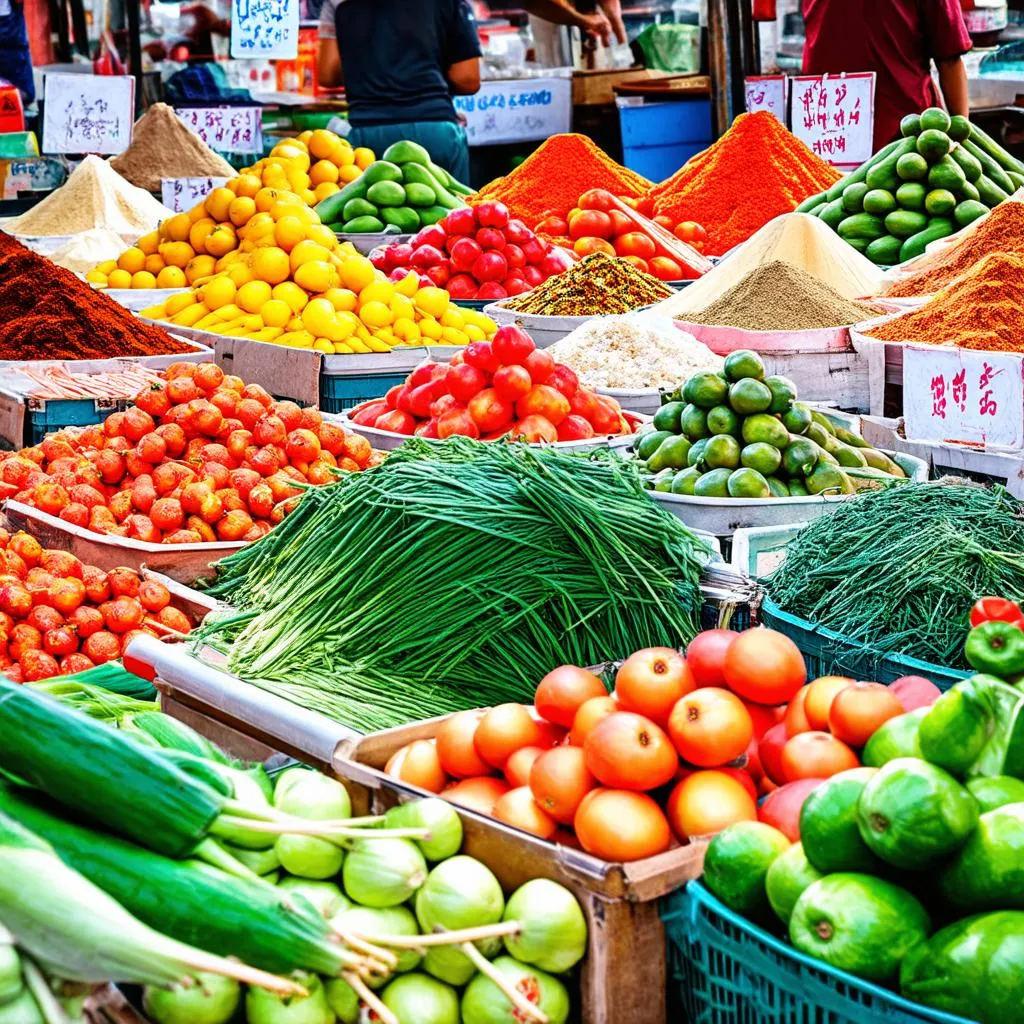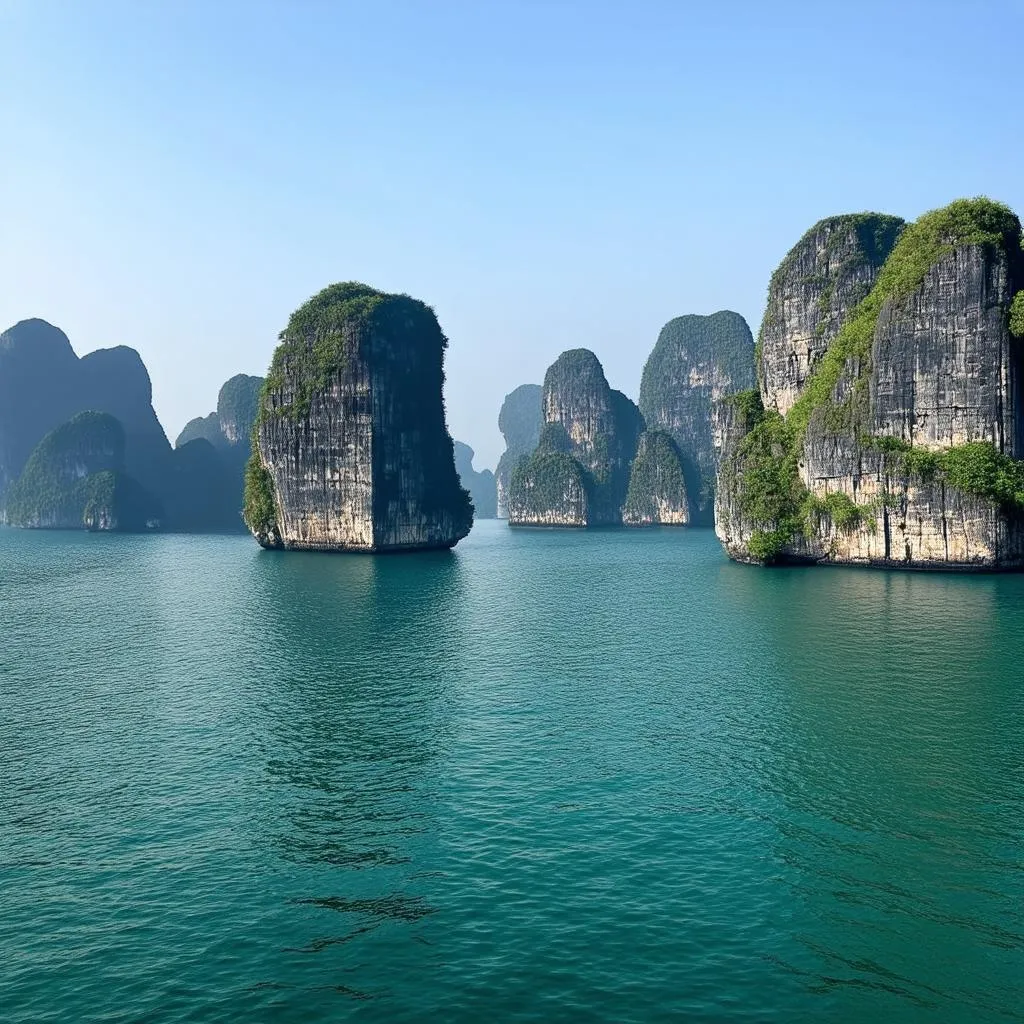Have you ever dreamt of wandering the bustling streets of Hanoi, getting lost in the fragrant chaos of Ben Thanh Market, or watching the sun rise over Ha Long Bay? Traveling to a new country, especially one as vibrantly different as Vietnam, is an incredible experience. But what if language barriers threaten to turn your dream adventure into a frustrating fumble?
Don’t worry! With a few essential English travel phrases tucked under your belt, you’ll be navigating Vietnam like a pro, ordering delicious pho, and making new friends in no time. Think of these phrases as your passport to deeper cultural immersion and more meaningful travel experiences.
Mastering the Basics: Greetings and Essentials
Let’s start with the fundamentals. A simple “hello” or “thank you” can go a long way in breaking the ice and showing respect for the local culture.
Greetings
- Hello – Xin chào (pronounced “sin chow”)
- Goodbye – Tạm biệt (pronounced “tam bee-et”)
- Thank you – Cảm ơn (pronounced “gam un”)
- You’re welcome – Không có gì (pronounced “khong koh zee”)
- Excuse me – Xin lỗi (pronounced “sin loy”)
- Yes – Vâng (pronounced “vuhng”) / Dạ (pronounced “zah”)
- No – Không (pronounced “khong”)
Essentials
- I don’t understand – Tôi không hiểu (pronounced “toy khong hee-oo”)
- Do you speak English? – Bạn có nói tiếng Anh không? (pronounced “ban koh noi tieng anh khong?”)
- Where is the bathroom? – Nhà vệ sinh ở đâu? (pronounced “nha ve sinh uh dow?”)
 Vietnamese Market
Vietnamese Market
Finding Your Way: Asking for Directions
Getting lost is part of the adventure, right? But when you’d rather not wander aimlessly, these phrases will be your best friend. Remember, having a map or using a translation app to show your destination can be incredibly helpful.
- How do I get to [place]? – Làm thế nào để tôi đến được [place]? (pronounced “lam the nao de toi den duoc [place]?”).
- Can you show me on the map? – Bạn có thể chỉ cho tôi trên bản đồ được không? (pronounced “ban koh the chi cho toy tren ban do duoc khong?”)
- I’m looking for [hotel/restaurant/landmark] – Tôi đang tìm [hotel/restaurant/landmark] (pronounced “toy dang tim [hotel/restaurant/landmark]”)
Indulging Your Inner Foodie: Ordering Food
Vietnamese cuisine is a symphony of flavors, from the savory broth of a steaming bowl of pho to the fresh, aromatic herbs that accompany every dish. Don’t be shy about diving into the culinary scene!
- I’d like to order [dish] – Tôi muốn gọi món [dish] (pronounced “toy muon goi mon [dish]”)
- This is delicious! – Ngon quá! (pronounced “ngon wha!”)
- Can I have the bill, please? – Cho tôi xin hóa đơn (pronounced “cho toy xin hoa don”)
Planning Your Trip: Booking Accommodation
Vietnam offers a range of accommodation options, from budget-friendly hostels to luxurious resorts. Booking in advance, especially during peak season, is always recommended.
- I’d like to book a room for [number] nights. – Tôi muốn đặt phòng cho [number] đêm. (pronounced “toy muon dat phong cho [number] dem”)
- Do you have any vacancies? – Bạn còn phòng trống không? (pronounced “ban con phong trong khong?”)
- What is the price per night? – Giá mỗi đêm là bao nhiêu? (pronounced “gia moi dem la bao nhieu?”)
 Ha Long Bay
Ha Long Bay
Delving Deeper: Cultural Sensitivity
While mastering basic phrases is a great start, understanding cultural nuances can significantly enhance your travel experience.
Did you know? In Vietnamese culture, it’s considered polite to remove your shoes before entering someone’s home or a place of worship. This simple act of respect demonstrates your awareness of local customs.
Expert Insight: “Traveling is about embracing the unknown and appreciating the differences that make each culture unique,” shares travel blogger [Random Expert Name], author of “The World Awaits.” “By learning a few local phrases and customs, you show respect and open yourself up to more authentic interactions.”
Common Travel Questions Answered
Q: What is the currency in Vietnam?
A: The official currency is the Vietnamese Dong (VND).
Q: Do I need a visa to visit Vietnam?
A: Visa requirements vary depending on your nationality. It’s recommended to check with the Vietnamese embassy or consulate in your country for the latest information.
Q: Is it safe to drink tap water in Vietnam?
A: It’s generally advised to stick to bottled water, which is readily available.
Embrace the Journey with Confidence
Remember, learning a new language takes time and practice. Don’t be afraid to make mistakes; locals are generally patient and appreciative of your efforts to communicate.
For more travel tips and inspiration for your next adventure, visit travelcar.edu.vn. Now, pack your bags, brush up on these handy phrases, and get ready for an unforgettable journey through the heart of Vietnam!